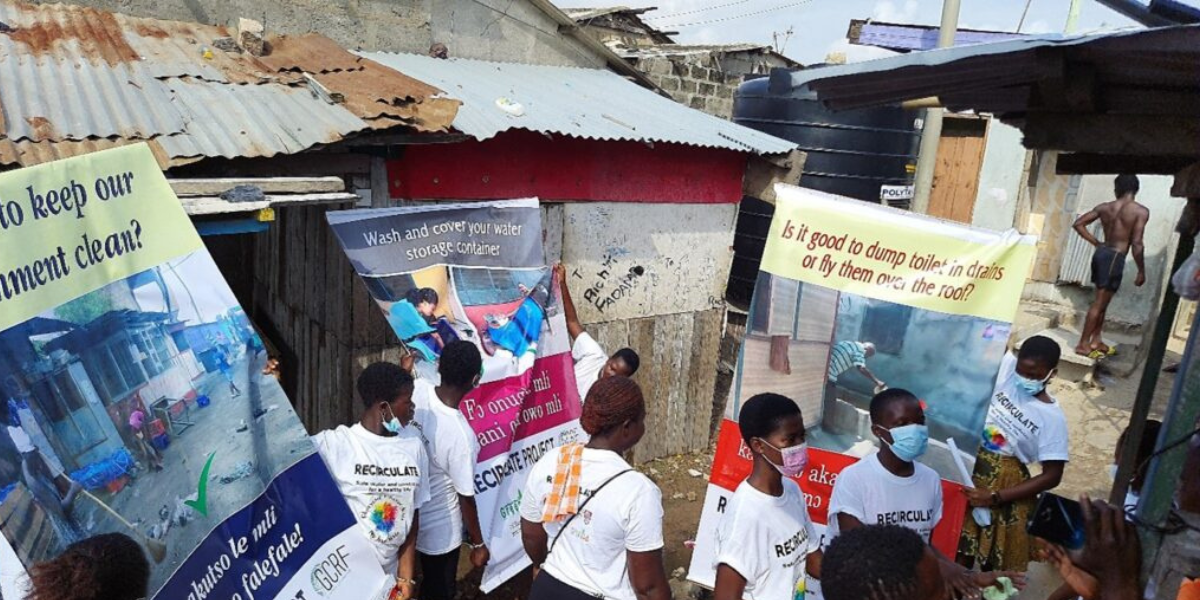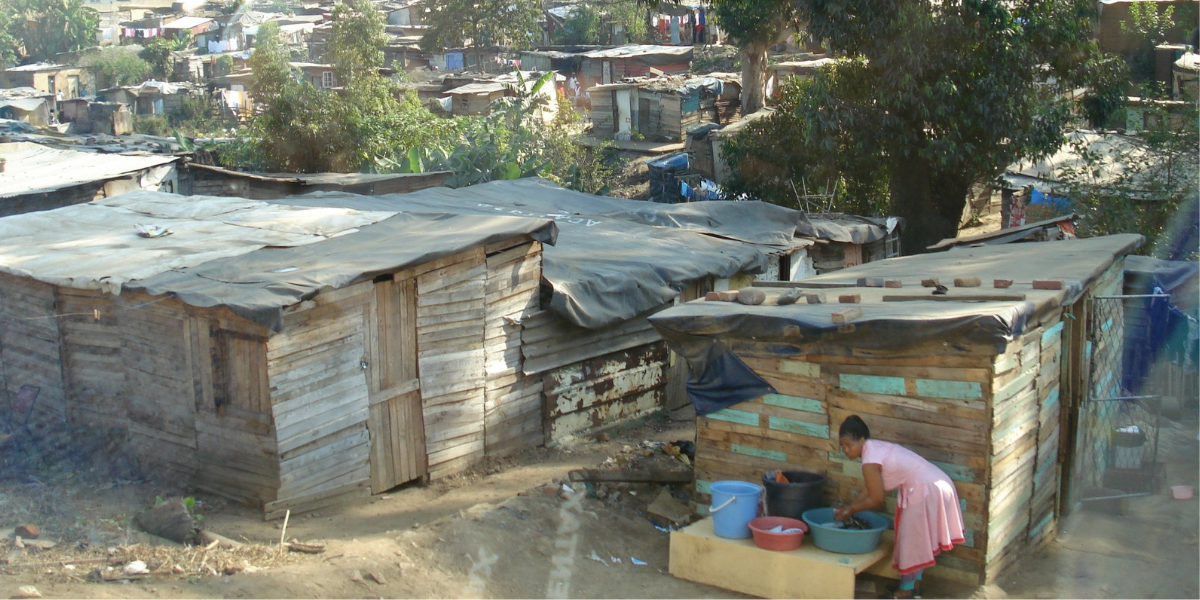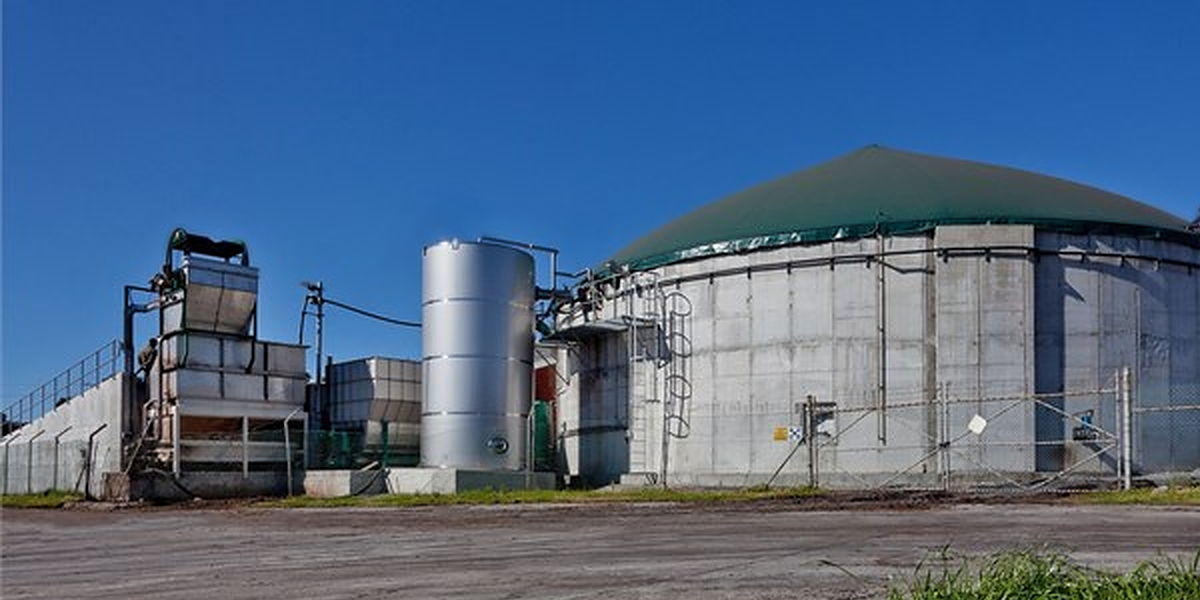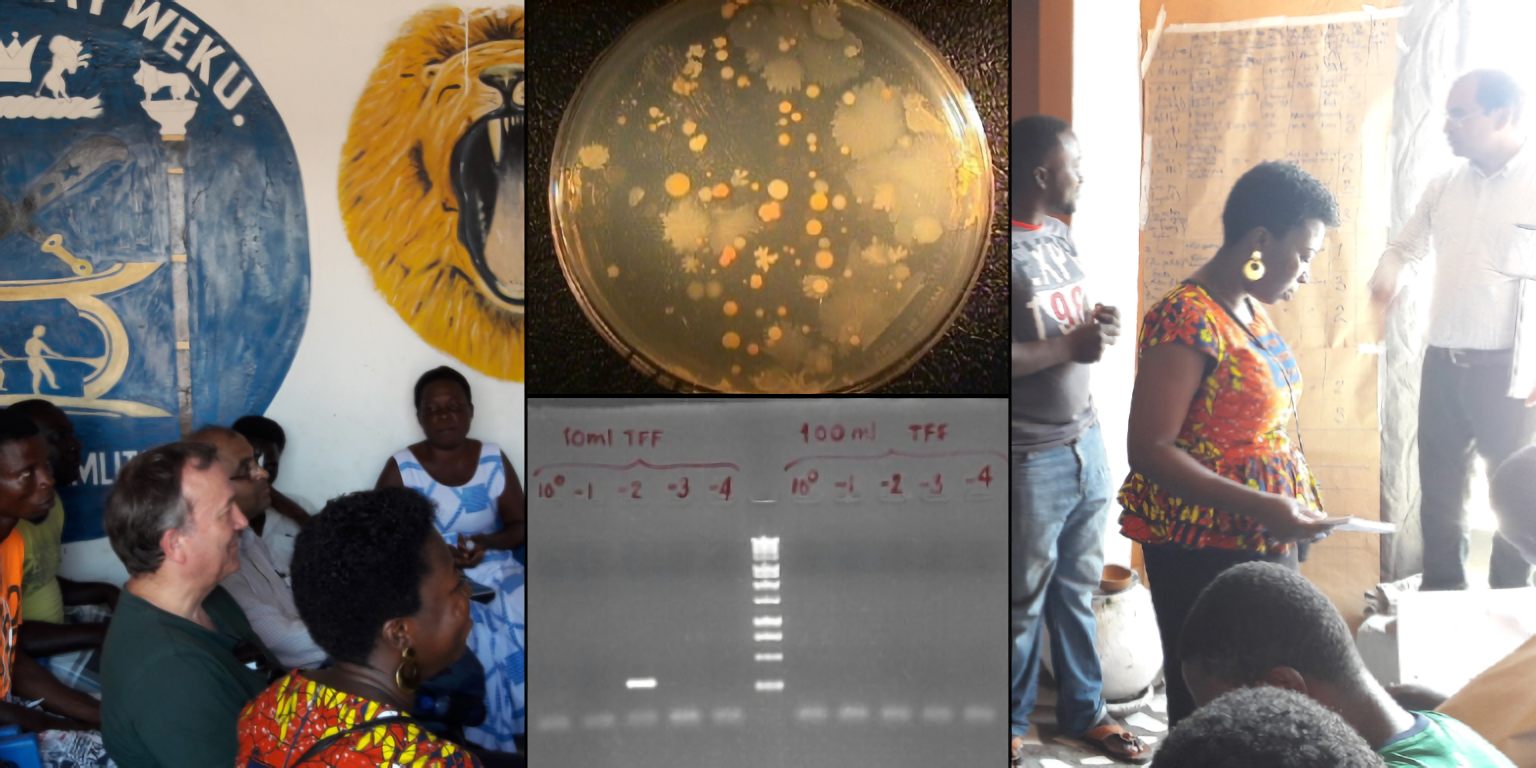
Environmental microbiology and social sciences: working together to tackle water for sanitation and health in low-income communities.
I have spent my whole career as an environmental microbiologist. My research has encompassed bacteriology, virology and protozoology, often with an emphasis on microbial ecology, molecular biology and molecular ecology with dashes of epidemiology. One common theme has been my focus on the environment and water. Another theme has been collaboration, which has always been a key component in my work, widening my research horizons and allowing me to take my research in new directions. One important change of direction came from a chance meeting with John Hermon-Taylor in 1994 who was, at the time, Head of Surgery at St George’s Hospital in London. This meeting steered our research to the environment-clinical interface by tracking a bacterial pathogen from animals via the environment to the gut of humans with Crohn’s disease. This was the starting point for my interest in combining microbial ecology and human health.
Throughout my most of my career, and across my various collaborations, the scientific disciplines and tools I have employed were obvious and complimentary to my ‘trade’. They are all focussed on the microbe. Being part of the GCRF-funded RECIRCULATE project has changed all that. As part of planning the project, I linked-up with Dr Manoj Roy from the Lancaster Environment Centre. Manoj is a social scientist with expertise in the problems of WASH- “Water, sanitation and hygiene”. We worked together, first to develop RECIRCULATE’s research in to ‘Water for Sanitation and Health’ and when the project was funded, to actually put our interdisciplinary research in to practice in communities in Accra, Ghana.
How does an environmental microbiologist link up with a social scientist with an interest in community and sanitation? I must admit, that before RECIRCULATE my limited view was that Manoj’s work just centred on talking and building concept models. It was hardly the science that I was familiar with! Yet within weeks, I was sitting with Manoj and a group talking about building concept models. I got it! I could see the point.
Our research is truly multidisciplinary and collaborative. As well as Manoj and myself, it includes colleagues at Ghana’s Water Research Institute (CSIR-WRI) and Institute for Industrial Research (CSIR-IIR), both part of Ghana’s Council for Scientific and Industrial Research- CSIR). Green Advocacy, a Ghana-based NGO, and Sanitation Services Ghana Ltd are also key partners as, of course, are the communities we work with in Gbegbeyse and Madina Zongo. Between us all, we use a wide range of research methods. I was familiar with some, like the chemical and microbiological analyses. What was new to me was combining those with using Geographical Information Systems for community mapping and with social science approaches, like health surveys.
As RECIRCULATE has progressed, I have started to learn the social science community-based processes, including those of talking to, listening to and understanding communities. The biggest lesson for me, as an environmental microbiologist, was realising that what I thought was the most important issue was not so important to the communities we were working with. Our work in informal communities with low water quality and poor sanitation prioritised improving community health, especially reducing childhood mortality. I assumed the community had the same priorities. Using a focus group of community members, I sat back to watch the Manoj and colleagues explore and rank the problems the community faced. As a naive environmental microbiologist, I had no doubt what their answer would be. The health of children would be the priority as it so clearly impacted the community. But what wasn’t the answer. For the community their number one problem was the need for a permanent bridge to get to the markets. The current one is washed away every year, resulting in a long-distance detour. Yes, of course, health problems were apparent but they were hidden under different banners. These included the lack of hospitals, and access to medicine as well as lack of formal schools. Drugs and violence also featured.
So what lessons have I learned? First and foremost, I understand now that community engagement is essential for improving community health. As for how I put that lesson in to practice then, as a scientist who gathers data on water quality, the answer lies in genuine collaboration with social science. By working together, I gained better understanding of ways to engage with the community. What that really means is talking with the community members, listening to their perspective and getting them “on-side” in all we do. That’s essential right from the start: without their support, our research will go nowhere and have no impact. With proper engagement in place, my insights at the microbiological level can be communicated more effectively to facilitate changes in understanding ‘on the ground’. My colleagues at CSIR-WRI have pioneered one very powerful way of doing that by getting young people from Gbegbeyse directly involved in our RECIRCULATE research. Like my CSIR-WRI colleagues, I’ve realised that graphs and data aren’t the best ways to empower communities with a better understanding of better practices to improve their health. I can see now that the most powerful tools to promote social acceptance of new approaches are those from social science that I hadn’t encountered before RECIRCULATE. Looking beyond RECIRCULATE, I have no doubt that I will still be supplying the microbiological data. I’ll still be producing all those lovely graphs and publishing in scientific journals. But I have learned that’s not all I can do as an environmental microbiologist. I now see collaboration with social science colleagues as the key to enter and be welcomed by the community. To engage with them, to learn from them, and to work with them help them make the changes that are needed, where they are needed. I think it was a US president Bill Clinton’s advisor who used the phrase “It’s the economy stupid” in his 1992 campaign. Maybe we need to repurpose that idea for all of us working with WASH and focus on who is the most important beneficiary. How about “It’s the community stupid”?
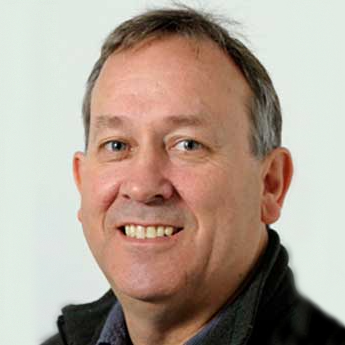 |
Professor Roger Pickup is currently the Chair of Biomedicine and Life Sciences in the Division of Biomedicine and Life Sciences at Lancaster University. His research interests are in environmental microbiology/molecular ecology with an interest in how the environment, with a particular focus on water, delivers microbial pathogens to human populations and their impact on human health. He is co-lead on RECIRCULATE work package 2 and leads RECIRCULATE work package 5 and is a co-investigator on ACTUATE. |
All articles in The FLOW are published under a Creative Commons — Attribution/No derivatives license, for details please read the RECIRCULATE re-publishing guidelines.
